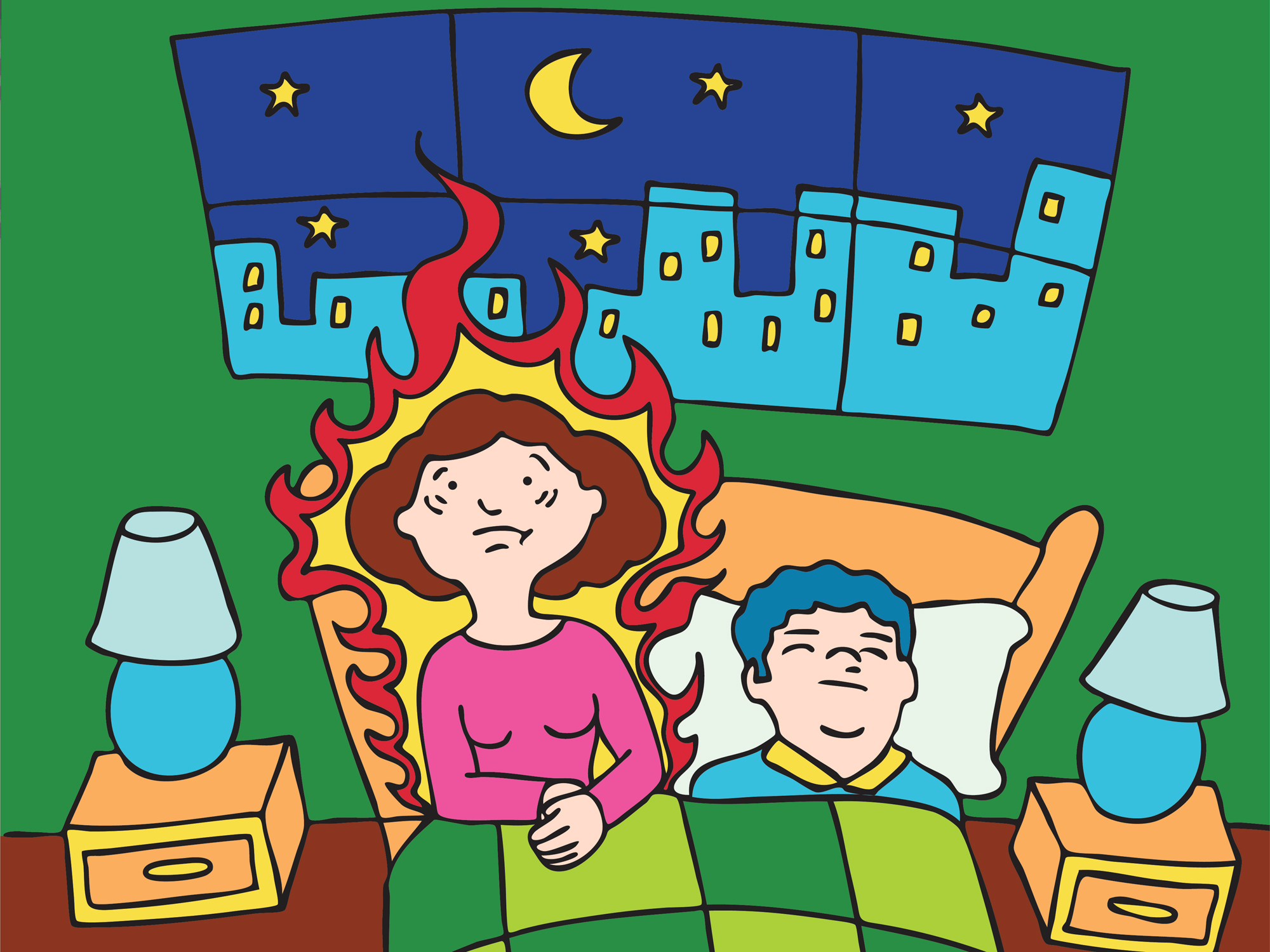Get Easy Health Digest™ in your inbox and don’t miss a thing when you subscribe today. Plus, get the free bonus report, Mother Nature’s Tips, Tricks and Remedies for Cholesterol, Blood Pressure & Blood Sugar as my way of saying welcome to the community!
3 ways to beat night sweats, hot flashes and menopause anxiety

Menopause symptoms such as hot flashes and sleep disruption can cause anxiety…
And anxiety can increase these symptoms. Regardless of the order they come in, if you’re in those menopausal stages, it can be a very rough roller coaster ride.
If you’re reading this and nodding your head, you’re not alone.
Just to give you some idea about how many other women feel your pain — when researchers studied 3,503 women aged 40 to 59 years, they found that more than 60 percent of them experienced anxiety. About 13 percent suffered menopause symptoms severe enough that it affected their overall quality of life.
Why does there seem to be such a strong connection between stress and menopause?
Anxiety is a form of stress that increases various stress hormones and inflammatory markers in the body. Though it’s not yet fully understood, one possible connection with menopause is increased levels of norepinephrine and serotonin, which play a role in thermoregulation in the body. When these hormones increase, it subsequently increases frequency of hot flashes with the consequence of interrupting your sleep. It’s also been shown that lack of sleep produces anxiety — so unfortunately, it can be a catch-22 cycle.
What if you had a few magical powers that could influence how you feel, reverse your menopause symptoms and get you off that merry-go round — without the potential risks of hormone therapy?
According to new research, it may not be a magical spell that solves your anxiety issues but simple acts of mindfulness — and here’s how it works…
Individuals with general anxiety disorder were involved in an 8-week mindfulness-based stress reduction program. This included a weekend retreat (a great excuse to get away), weekly group sessions (and find a support group) and daily home practice of mindfulness meditation, using guided audio recordings (some fabulous ‘me’ time is awaiting you!).
These are the three simple, key practices they learned to do:
Breath awareness. This involves focusing on your breathing so your attention is brought into the present moment where you can experience your physical sensations, thoughts and emotions and simply allow them to pass by as you return your focus to your breath. The act of being present provides an opportunity for you to be an objective observer filled with accepting positive emotions, rather than being subjective and filled with judgement, anger, or other negative emotions.
The practice of yoga is rich with stress-reducing breathing exercises. Try this one to breathe stress out and energy in.
Body scanning. This is a guided meditation that takes your awareness through different areas of the body sequentially so you become more aware and can allow experiences to ebb and flow. Dr. Wiley provides a great step-by-step primer on guided meditation here.
Hatha yoga. This involves gentle stretching and slow movements that are integrated with deep breathing and a focus on being kind to the body. Deep breathing is integrated with flowing movements to foster nurturing and body-mind connectedness. Cat pose is a great one to try.
All of these practices are designed to generate awareness of the present moment, bringing you into a place of peace and total acceptance. As time goes on, these practices spill over into everyday life, giving you the ability to be increasingly present in your daily activities. This not only impacts emotions but also has proven physiological outcomes.
And it works! The researchers found that in people practicing mindfulness meditation, levels of stress hormones and inflammatory markers were significantly reduced. In the control group, where people were only given general stress management education, the stress response and inflammatory markers increased.
While mindfulness meditation may not eliminate all your anxiety or menopause symptoms, it is clear that it does influence physical symptoms and will increase your resilience to cope with the various stressors you may face.
Sources:
-
Nunez-Pizarro JL, et al. Association between anxiety and severe quality-of-life impairment in postmenopausal women: analysis of a multicenter Latin American cross-sectional study. Menopause. 2017.
-
Hoge EA, et al. Randomized Controlled Trial of Mindfulness Meditation for Generalized Anxiety Disorder: Effects on Anxiety and Stress Reactivity. The Journal of Clinical Psychiatry. 2013;74(8):786-792.
-
Hempel S, et al. VA Evidence-based Synthesis Program Reports. Evidence Map of Mindfulness. Washington (DC): Department of Veterans Affairs (US); 2014.












